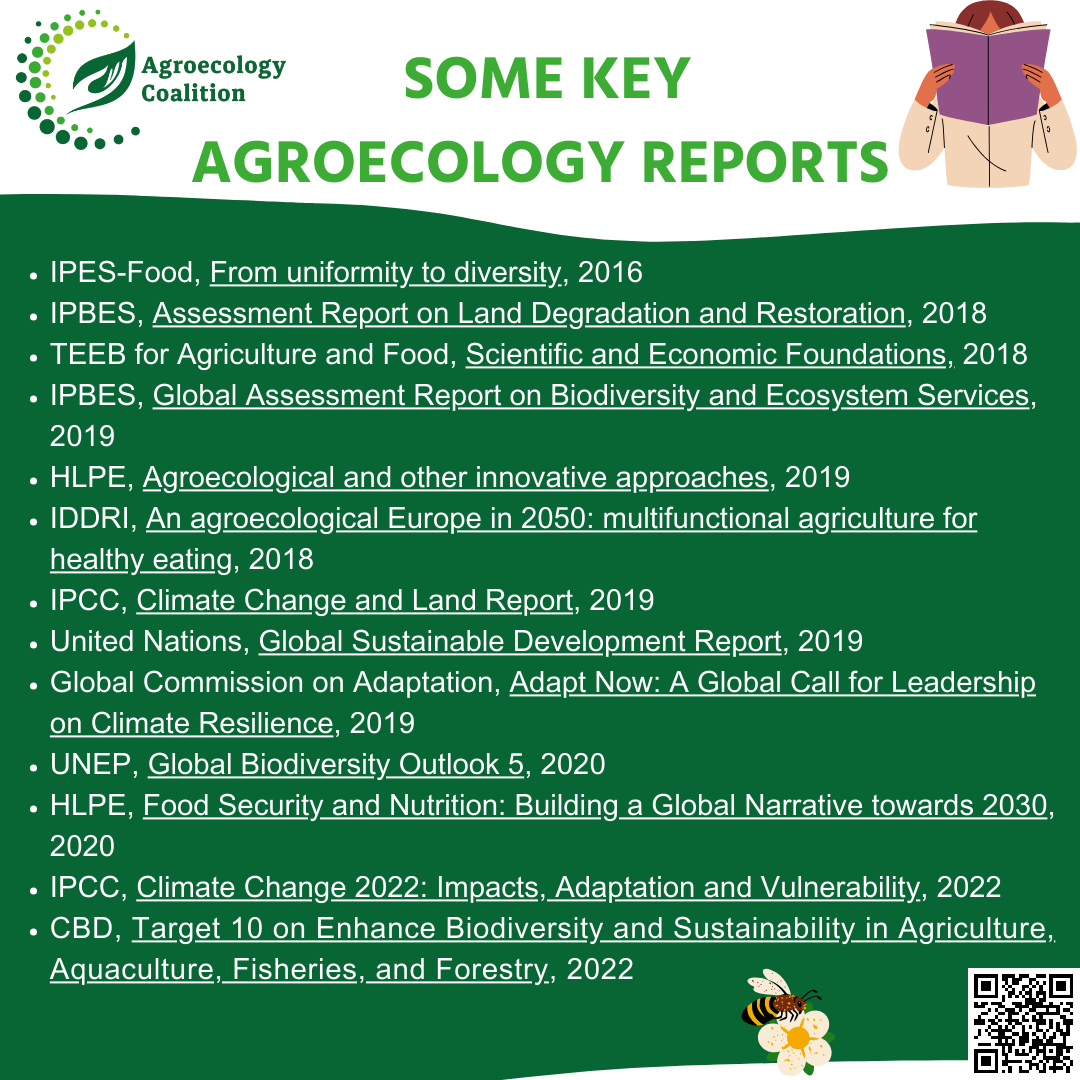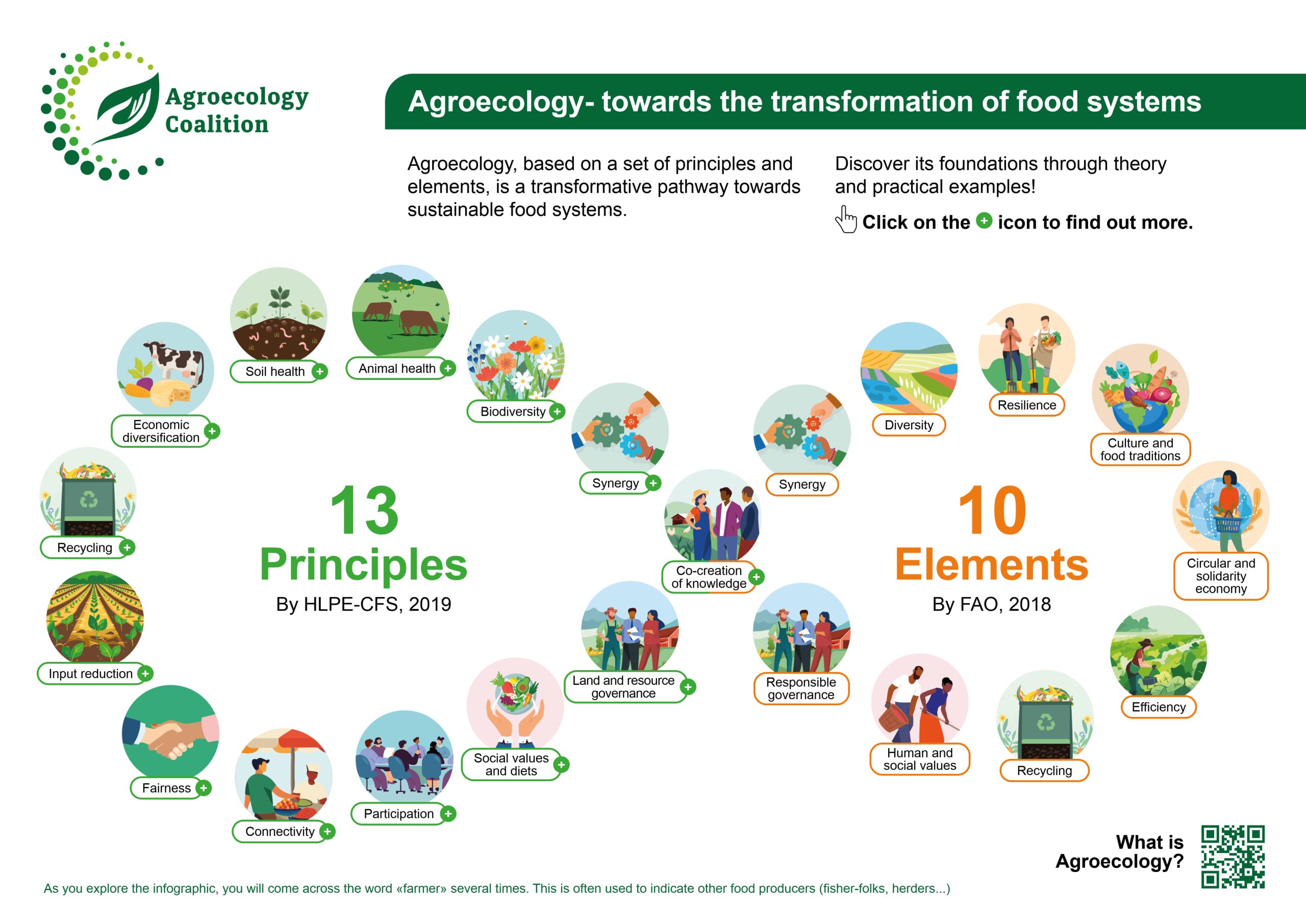What is Agroecology
Agroecology is farming with nature – not against it – to produce healthy food while protecting the land, supporting farmers, and connecting producers and consumers. It means growing and providing nutritious, diverse foods and feeding communities in a way that ensures fairness, strengthens resilience, and sustains the planet. More than a farming method – we are a global movement for food systems that are fair, local, democratic, and rooted in care.
In a report published in 2019, the High- Level Panel of Experts on Food Security and Nutrition (HLPE-FSN) of the Committee on World Food Security and Nutrition (CFS) elaborated the 13 Principles of Agroecology. These 13 principles are aligned with the 10 Elements of Agroecology approved by the United Nations Food and Agriculture Organizations (FAO)’s Council in 2019, after a consultation process carried out between 2015 and 2017, and culminating with an International Symposium of Agroecology in 2018.
Click below on the interactive infographic!
Credits: Agroecology Coalition
The Agroecology Principles and Elements apply to all forms of sustainable agriculture and food production systems, including crops, livestock and pastoral systems, agroforestry, fisheries and aquaculture. They also apply to food processing, commercialization and consumption. Applying these principles also contributes to improving gender equality, making agriculture more attractive for youth, creating dignified income and living conditions, and contributing to healthy diets.
These Principles and Elements promote resilience, economic viability, social acceptance, cultural diversity and efficiency while protecting the environment. Thus, they help to inform and guide decisions and ensure to avoid siloed interventions, unintended consequences, and short-term solutions.
Backed by scientists in key reports (see below), social movements, farmers and governments, agroecology is already providing solutions across the world and is seen as a holistic approach capable of addressing these multiples challenges at the same time.

What’s wrong with the current food system?
While current food systems face major environmental, climate and health challenges, they are responsible for one-third of global greenhouse gas emissions and for nearly 80% of biodiversity loss. They are often chemical-dependent monocultures which makes them vulnerable to disease and unforeseen shocks.
These practices also contribute to forest destruction, the displacement of communities, social inequalities, water pollution, soil degradation.
The precarious livelihoods and social inequities, faced by many farmers and food system workers, in particular women, Indigenous Peoples and youth, exacerbate the difficulties in ensuring adequate nutrition for all.
Today, industrial agriculture is no longer fit for purpose.
The polycrises present both an urgency and an opportunity to bring together diverse forces and sectors to ensure transformational change.
- You can find more publications, videos, tools and courses on agroecology in our “agroecology resources” section.
- If you want to read about the implementation of agroecology in projects, have a look at our repository of case studies.
Banner picture credits: Chandra Biradar

